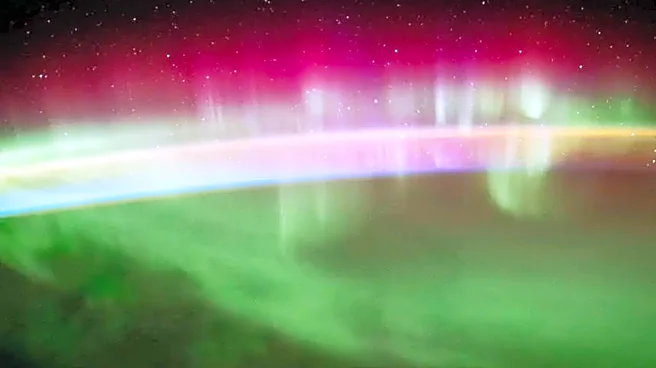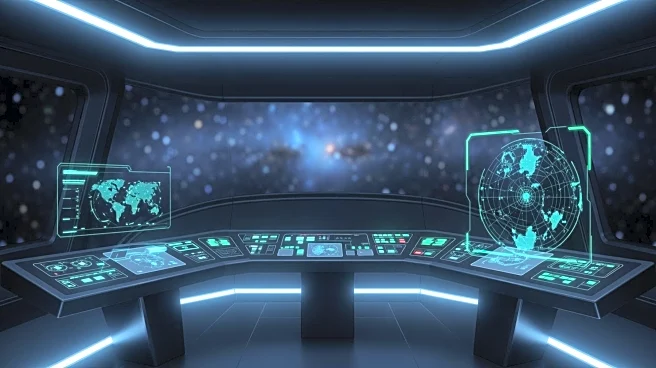What's Happening?
The BBC article delves into historical interpretations of auroras, highlighting how different cultures have viewed these natural phenomena as omens or signs. During the Jacobite Rebellion in 1716, strange lights in the sky were interpreted in various
ways, from flaming swords to armies fighting. These interpretations were influenced by political and religious contexts, with some seeing them as portents of national fate. The article discusses how auroras have been perceived throughout history, from creation myths to political omens, and how these interpretations have varied across cultures.
Why It's Important?
Understanding historical interpretations of auroras provides insight into how natural phenomena can influence cultural and political beliefs. These interpretations often reflect the societal values and fears of the time, showing how science and mythology intersect. The study of auroras and their historical significance can inform current discussions on how natural events are perceived and the impact they have on societal narratives. This exploration can also contribute to the broader understanding of cultural heritage and the role of natural phenomena in shaping historical events.

















